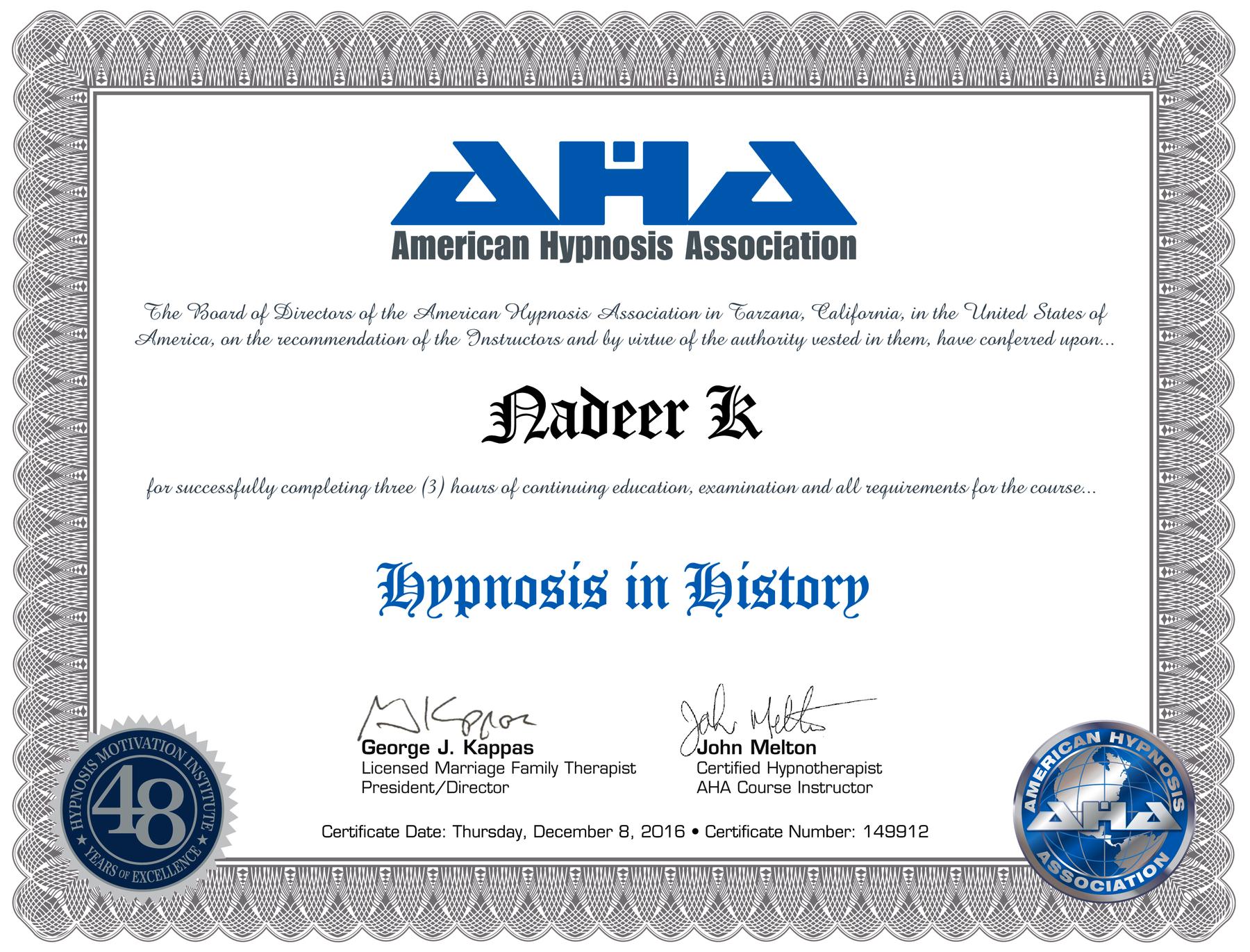Depression is a silent but destructive force that can impact every aspect of your life. It can make even the simplest tasks seem impossible and drain you of all motivation. Unfortunately, many people with depression struggle to find effective treatments, leaving them feeling hopeless and alone. But what if there was a way to conquer depression without relying solely on medication or traditional talk therapy? What if there was a proven method that could help you break free from the grip of depression and start living your life again? In this blog post, we’ll explore how hypnotherapy has been shown to be an effective tool in the fight against depression.
Introduction: How Hypnotherapy Can Help You Conquer Depression
Hypnotherapy for depression has been gaining popularity as a natural and effective treatment option. It is a safe and non-invasive therapy that helps individuals suffering from depression to overcome their negative thoughts and emotions. Hypnotherapy works by putting the individual in a state of deep relaxation, where the subconscious mind becomes more receptive to positive suggestions. This allows the therapist to work with the individual to identify and address the root cause of their depression. Hypnotherapy can help individuals develop coping mechanisms, build self-esteem, and improve their overall mental wellbeing. It is important to note that hypnotherapy should not be used as a substitute for medical treatment, but rather as a complementary therapy. With its proven benefits, hypnotherapy can be an effective tool in helping individuals conquer depression and take control of their mental health.
Understanding the Link Between Depression and Mental Health
Depression is a common mental health disorder that affects millions of people worldwide. It is characterized by persistent feelings of sadness, hopelessness, and a lack of interest in activities that were once enjoyable. Depression can be caused by a variety of factors, including genetics, environmental factors, and life events. It can also be associated with other mental health conditions such as anxiety and post-traumatic stress disorder (PTSD).
Mental health plays a crucial role in depression as it affects the way people think, feel, and behave. People with depression often experience negative thoughts and emotions that can be difficult to manage on their own. This is where hypnotherapy comes in as it offers an effective way to address the underlying causes of depression by accessing the subconscious mind.
In the next section, we will explore the science behind hypnotherapy for depression treatment and how it can help you overcome this debilitating condition.
The Science Behind Hypnotherapy for Depression Treatment
Hypnotherapy for depression is based on the idea that the mind can influence the body. It is a complementary therapy that uses hypnosis to create a relaxed state of mind. During this state, the therapist can suggest positive changes to the patient’s thoughts, feelings, and behaviors. This type of therapy has been shown to be effective in treating depression by helping patients identify and change negative thought patterns that contribute to their symptoms. Research has also shown that hypnotherapy can help reduce anxiety, improve sleep quality, and increase self-esteem in patients with depression. Hypnotherapy sessions typically last between 30-60 minutes and may be conducted in-person or online. The number of sessions required varies depending on the severity of the patient’s symptoms. It is important to note that hypnotherapy should not be used as a substitute for medical treatment but rather as a complementary approach to managing depression.
Benefits of Hypnotherapy for Treating Major Depressive Disorder
Hypnotherapy for major depressive disorder (MDD) is a powerful tool that can bring notable relief to patients suffering from this debilitating mental health condition. Several clinical studies have demonstrated the effectiveness of hypnotherapy in treating MDD, including reducing symptoms such as anxiety, sleep disturbances and low mood.
One study found that MDD patients who received hypnotherapy experienced significant improvement in their depression scores compared to those who didn’t receive any treatment or only received antidepressant medication. Hypnosis allows individuals to access their subconscious mind where negative thought patterns and beliefs are stored, which contributes significantly to depression.
Hypnotherapy helps patients develop new coping mechanisms, explore alternative ways of thinking and gain greater control over their emotional responses during difficult situations. All these changes work together to improve overall mental wellbeing and provide an effective way forward for people struggling with depression without resorting solely on medications or undergoing invasive therapies.
What to Expect During a Hypnotherapy Session For Depression
Understanding the Basics of Hypnotherapy for Depression
During a hypnotherapy session for depression, the therapist will guide you into a state of deep relaxation and heightened awareness. This state is called trance, and it involves accessing your subconscious mind to identify negative thought patterns that may be contributing to your depression. The therapist will then work with you to replace those negative patterns with positive ones through suggestion and visualization techniques.
The benefits of hypnotherapy for depression have been well-documented, including improved mood, decreased anxiety, and increased relaxation. Additionally, hypnotherapy can often provide faster results than traditional talk therapy alone, making it an appealing option for people looking to take control of their mental health quickly.
Tips for Preparing Yourself for a Successful Hypnotherapy Session
-
Set an intention: Before your hypnotherapy session, take some time to set an intention for what you hope to achieve. This could be anything from reducing symptoms of depression to improving your overall mental wellbeing.
-
Relaxation techniques: Practice relaxation techniques such as deep breathing or meditation before your session. This will help you feel more calm and centered during the hypnotherapy process.
-
Be open-minded: Keep an open mind and trust in the process of hypnotherapy. Remember that it is a safe and effective treatment option for depression.
-
Communicate with your therapist: Be sure to communicate any concerns or questions you may have with your hypnotherapist before and during the session. This will help ensure that you have a successful experience and achieve your desired outcomes.
-
Follow through with post-session recommendations: Your hypnotherapist may provide recommendations for post-session self-care or activities to continue the progress made during the session. Be sure to follow through with these recommendations for optimal results in treating depression with hypnotherapy.

Success Stories: Real People Share Their Experiences with Hypnotherapy for Depression
Hypnotherapy for depression has helped many people overcome their struggles with mental health. One success story is from Jane, who had been dealing with depression for years and tried various treatments without success. She was skeptical about hypnotherapy but decided to give it a try. During her sessions, she was able to identify the root cause of her depression and work through it with the help of her therapist. After a few sessions, she noticed a significant improvement in her mood and overall wellbeing.
Another success story is from John, who had been on medication for his depression but was still struggling with negative thoughts and feelings. He decided to try hypnotherapy as a complementary treatment and found that it helped him gain a new perspective on his situation. He learned how to reframe his thoughts and focus on positive outcomes, which led to a decrease in his symptoms.
These success stories show that hypnotherapy for depression can be an effective treatment option for those struggling with mental health issues. It provides a safe and non-invasive way to address the underlying causes of depression and develop coping mechanisms to manage symptoms.

Combining Hypnotherapy with Other Therapeutic Approaches to Treat Depression
While hypnotherapy can be an effective standalone treatment for depression, it can also be combined with other therapeutic approaches for even greater results. Cognitive-behavioral therapy (CBT) is one such approach that has been shown to work well in conjunction with hypnotherapy. CBT helps individuals identify negative thought patterns and replace them with more positive ones, while hypnotherapy can help reinforce these new thought patterns on a subconscious level.
Mindfulness meditation is another complementary approach that can be used alongside hypnotherapy. Mindfulness meditation helps individuals become more aware of their thoughts and emotions in the present moment, which can help them better manage symptoms of depression. When combined with hypnotherapy, individuals may experience a deeper sense of relaxation and self-awareness.
Overall, combining hypnotherapy with other therapeutic approaches can provide a more comprehensive treatment plan for individuals struggling with depression. It’s important to work with a qualified therapist who can tailor the treatment plan to your specific needs and goals.
Conclusion: Take Control of Your Mental Wellbeing with Proven Benefits of Hypnotherapy
Take Control of Your Mental Wellbeing with Proven Benefits of Hypnotherapy
If you’re struggling with depression, hypnotherapy might be the solution you’ve been searching for. The proven benefits of this treatment can help transform negative thought patterns and behaviors into positive ones. By attending regular sessions, patients may experience significant relief from symptoms related to major depressive disorder.
However, it’s important to note that hypnotherapy works as a complement to other therapeutic approaches rather than a stand-alone solution. In combination with cognitive-behavioral therapy or medication prescribed by your healthcare provider, hypnotherapy can enhance your chances of treating depression effectively.
It’s critical to take control of your mental wellbeing and not give up on seeking treatment until you find something that works for you. With its track record in alleviating the symptoms associated with depression, hypnotherapy is a valuable tool that could benefit many individuals like yourself who are experiencing prolonged periods of sadness or anxiety.
In conclusion, hypnotherapy is a powerful tool that can help individuals conquer depression and take control of their mental wellbeing. With its proven benefits, hypnotherapy can be an effective treatment option for those suffering from major depressive disorder. By understanding the link between depression and mental health, individuals can make informed decisions about their treatment options. If you are considering hypnotherapy for depression, it is important to find a qualified therapist who can guide you through the process and help you achieve your goals. Remember, you don’t have to face depression alone – there is hope and help available through the power of hypnotherapy.
Questions
Who can benefit from hypnotherapy for depression?
Hypnotherapy can benefit anyone suffering from depression.
What is hypnotherapy for depression?
Hypnotherapy is a form of therapy that uses hypnosis to help treat depression.
How does hypnotherapy help with depression?
Hypnotherapy helps by accessing the subconscious mind and addressing negative thought patterns.
What if I’m skeptical about hypnotherapy for depression?
It’s understandable to be skeptical, but many studies have shown its effectiveness.
How long does hypnotherapy for depression take to work?
Results vary, but some patients see improvement after just a few sessions.
What if I don’t feel comfortable being hypnotized?
Your hypnotherapist will work with you to ensure you feel safe and comfortable throughout the process.
